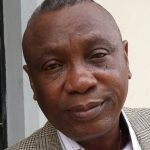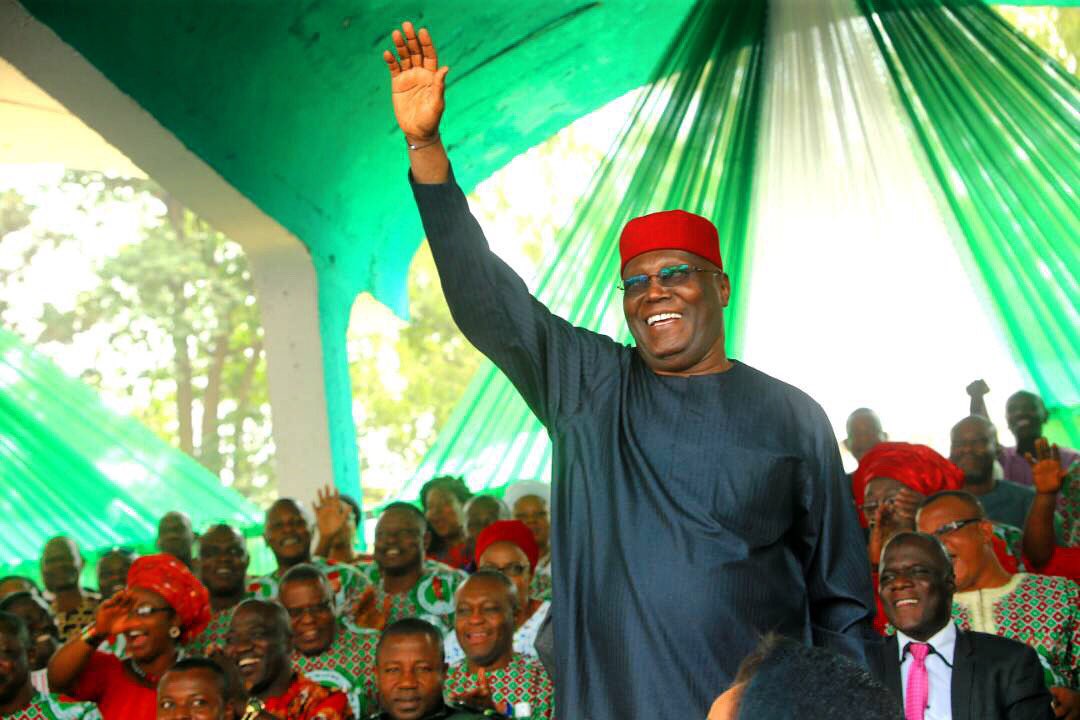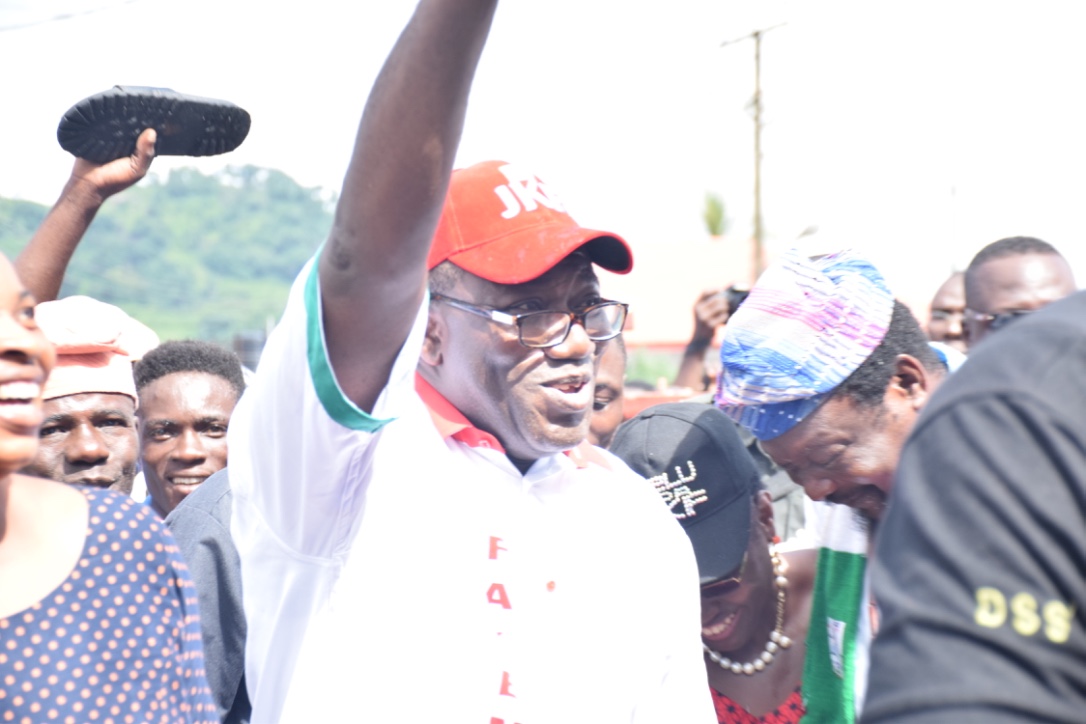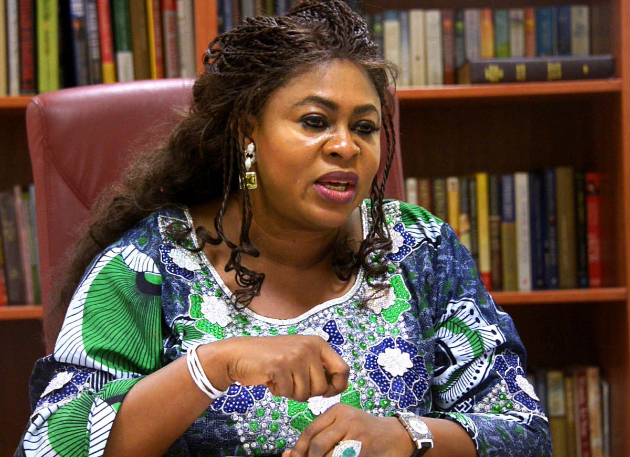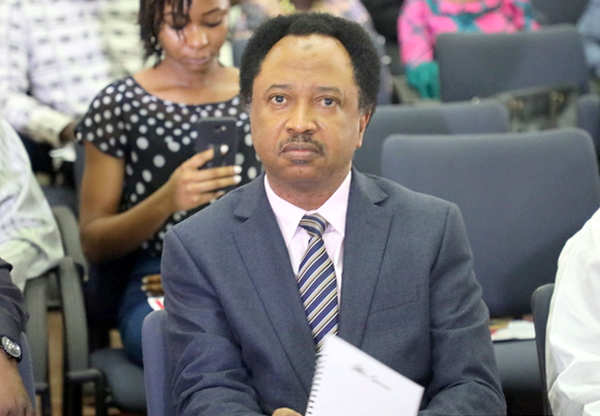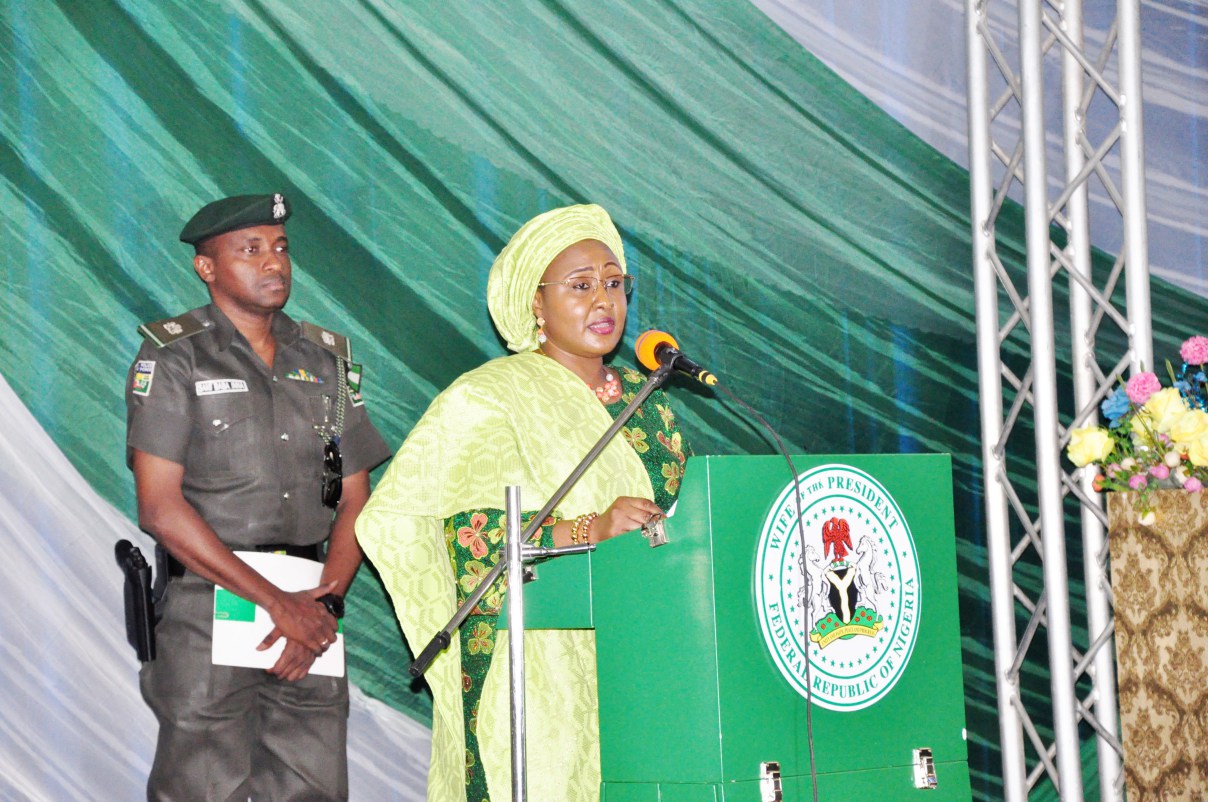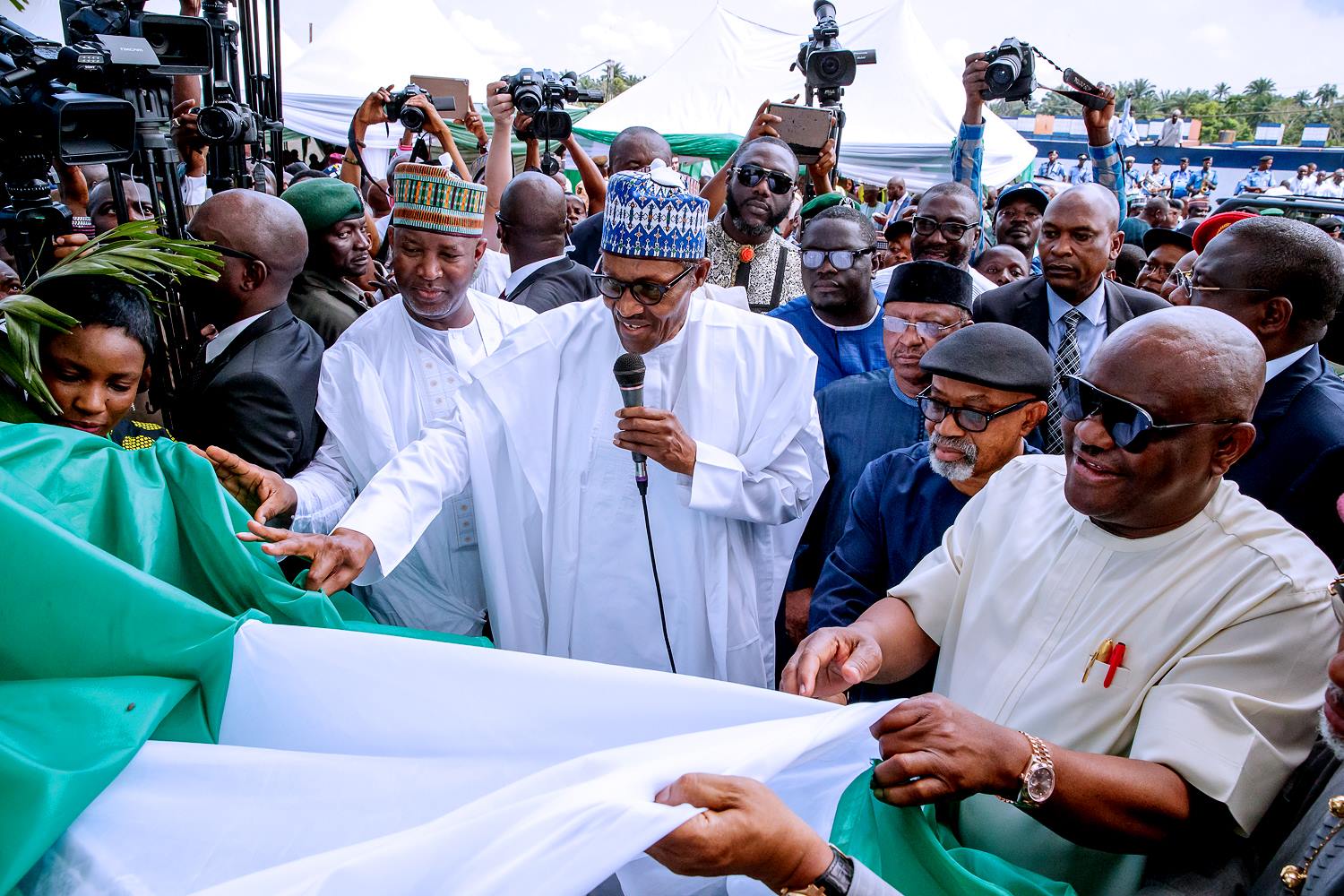The emergence of Alhaji Atiku Abubakar as the Presidential Candidate for the PD.P. has compelled me to re-read a book on him by a colleague Onukaba Adinoyi Ojo (1960-2017). The 338 page book was published in 2006 by Africana Legacy Press. An autographed copy of the book was given to me by Alhaji Atiku Abubakar on November 8, 2013. Mr. Onukaba Adinoyi Ojo died in a motor accident along Ife/Akure road on March 5, 2017.
The book appears to be the most authoritative book on the P.D.P. Presidential Candidate. For, according to Onukuba himself, he produced the book with the assistance of Amina Titi Abubakar, Ladi Atiku Abubakar, Princess Rukiya Atiku Abubakar, Jamila Atiku Abubakar, Adamu Atiku Abubakar, Governor Boni Haruna, Senator Jonathan Zwingina, Hamman Ahmed Kojoli, Yahaya Bala, Peter Okocha, Yomi Edu, Umar Ardo, Abdullahi Nyako, Chris Mammah and Nath Yaduma. Others who helped him in producing the book includes Otunba Oyewole Fashawe, Sola Akanmode, Patrick Adaba, Tokunbo Adeola, Jamilu Lamido, Mohammed Shata, Ambassador M.G. Samanki, Ahmadu Bode, Sa’ad Abubakar, Justice Abubakar Alkali Abba, Boss Mustapha, Maxwell Gidado, Onyeama Ugochukwu, Garba Abdullahi, Chubado Jada, Idris Yusuf, Chigbo Anichebe, Tunde Olusunle, Babalele Abdullahi, Muyiwa Oyekan, Chuks Anyanso, Garba Shehu, Adeola Akande, Shima Ayati, Jauro Sidiq and Koko Olugbesan.
As far as those close to Atiku Abubakar, those mentioned are his core advisers. The narrative in the book is interesting. On page 31 of the book we were told of how Atiku Abubakar lost his father at eleven. Otunba Oyewole Fashawe is the best friend of former President Olusegun Obasanjo. He is a Muslim. He is the Asiwaju of Owo in Ondo state. Interestingly, he is also Atiku Abubakar’s best friend.
It is still a mystery how the man has been able to maintain his friendship with the two men even when they were fighting each other. On page 138 of the book, we were told that “Otunba Oyewole Fashawe was also eking out a living as a clearing and forwarding agent at Apapa Ports when Atiku met him. They had known each other as far back as Idi Iroko and Gamboru border post in the Northeast.
Advertisement
“Whenever he was on duty, any clearing and forwarding agent who was not sure of himself would not go near him. He was strict and firm. He did not like agents who tried to cheat the government of its revenue. You know importers always try to cut corners to be able to pay lower duty. Importers put a lot of pressure on us agents. We had to be very careful with Atiku because he was a no-nonsense officer”, Fashawe remembered.
One day at Apapa, Atiku was on tour of Customs’ facilities at the ports when he ran into Fashawe. He asked if Fashawe had set up his own licensed clearing and forwarding agency. Atiku had often advised Fashawe to set up his own company. Fashawe said he was yet to own a license. Atiku advised him to register a company and then apply for a Customs license so that he could operate legally. Fashawe registered Bako Services and Atiku assisted him in getting a license.
“He assisted me without compromising his position”, Fashawe remembered. Bako Services would later become a multi-million Naira business with interests in many sectors of the economy”. Working under Bello Mohammed, the man Babangida gave the Directorship of Customs, turned out to be the most frustrating for Atiku. Mohammed was not comfortable having around him someone who had competed with him for the same job. He felt he could never trust Atiku and Atiku would not be loyal and committed to his success in the job. He wanted Atiku gone.
Advertisement
Thrice he recommended him for retirement, but Shagaya (the then Minister of Internal Affairs) turned it down. Atiku went to see Shagaya and told him that he would like to leave service voluntarily because he did not want to be disgraced out of office. Shagaya advised him not to quit. Atiku had at least 10 more years to go in the service and Shagaya felt he could still head the agency before his retirement. But Atiku’s soul was no longer in the Customs. He needed to move on. He had always wanted to work for himself anyway. He asked for his annual leave and it was approved. He left for the lesser hajj in Mecca, Saudi Arabia. Before his departure, Atiku had written his resignation letter, put it in an envelope, sealed and given it to his friend, Adamu Yaro, to hand it personally to Bello Mohammed, his boss. Adamu Yaro did not know the content of the letter.
He simply did as his friend had told him. The Director was not happy to see Atiku go voluntarily. He briefed Shagaya about it and the Internal Affairs Minister advised him to accept the resignation. Atiku had packed out of his Reeve Road official flat in Ikoyi and moved into a spacious, furnished guesthouse owned by NICOTES (his oil services company) on Bourdillon Road in Ikoyi.
When he joined the Customs 20 years earlier, he had drawn a graph anticipating his career progression from Cadet to Director of Customs by age 40. “I told myself that if by the time I was 40 years old I did not head the organization, I would quit. Well, I almost did, I retired at 43 as a Deputy Director”, Atiku said. One of those Atiku consulted about his planned resignation was his old friend from Apapa Ports, Fashawe. He visited Fashawe at Owo, his hometown. Like most of his friends, Fashawe advised him not to rush out of Customs until he had served as Director. But Mrs Lydia Ijamolayemi, Fashawe’s mother, had a different opinion. She advised Atiku to leave the Customs and embark on the journey God had destined for him. Five years earlier, she had visited Atiku in his office in Lagos and predicted that Atiku would be presiding over the affairs of Nigeria by age 52 to 55 years.
The matriarch of the Fashawe family was well known all over Owo and beyond as an extraordinarily gifted seer”. On how Atiku entered politics. Adinoyi Ojo Onikaba wrote, “Look, you are good, you relate well with people. I think you will make a good politician. Why don’t you join me in politics”. Shehu Musa Yar’Adua told Atiku during one of their meetings. Atiku consulted his family and friends such as Adamu Bello, Adamu Yaro, Oyewole Fashawe and Magdiel Samanki.
Advertisement
Some family members and friends advised him against it. They had wanted him to reach the peak of his career as Director of Customs before bowing out. Some felt that Nigerian politics was too messy, expensive, treacherous and dangerous to rush into. They urged him to reconsider his plan. Atiku likes to take his time before taking a decision as weighty as his next career move. But once he makes up his mind, he stands by it no matter the pressure on him to reconsider it. He can be quite stubborn. After mauling over the matter for sometimes, Atiku finally decided to quit Customs and go into politics. By 1988, Atiku had started attending regular meeting at Yar’ Adua’s Ikoyi home.
The retired General had brought together an eclectic group of old and new politicians, progressives and radicals, intellectuals and the semi-educated ones, Muslims and Christians, Southerners and Northerners, and rich and poor. He invited as many political leaders as were willing to come. He did not discriminate.
For example, when some people protested against the invitation of Lamidi Adedibu, a controversial politician from Ibadan whose name had been associated with thuggery in the past, Yar’Adua overruled them, arguing that the group would someday need the Adedibus of Nigerian politics. Besides Adedibu, others invited to the new political association included M.S. Buhari, Yomi Edu, Chuba Okadigbo, Farouk AbdulAzeez, Patrick Dele Cole, S.M. Afolabi, Yahaya Kwande, Dapo Satumi, Bode Ajewole, Babalola Borishade, Deji Fashina, Ishola Filani, Ango Abdullahi, Garba JaAbdulkadir, Tunde Oyeleke, Titi Ajanaku, Babagana Kingigbe, Tony Anenih, Akin Omoboriowo and Atiku Abubakar. Atiku knew some of them personally but there were others he was meeting for the first time. “Strange bedfellows”, was how some people described members of the political family that came to be known as the Yar’Adua Group. They were held together by Yar’Adua’s vision and determination to radically alter the politics of Nigeria by building a strong and popular party”.
Advertisement
Views expressed by contributors are strictly personal and not of TheCable.
Add a comment
